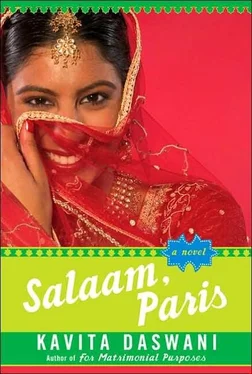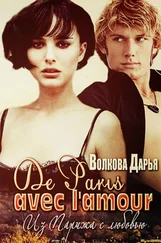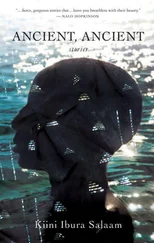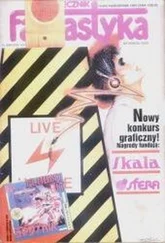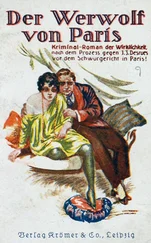The morning after the show, because of my photograph on Page Six of the New York Post, everyone knew me, even if what they thought they knew wasn’t actually true. In the first place, I wasn’t really an orphan. In the second, I had never been impoverished. Perhaps just the last word of the headline, FASHIONISTAS WOWED BY NEW MODEL-IMPOVERISHED MUSLIM ORPHAN OUTCAST, was correct.
Stavros swore to me that during his game of Chinese whispers, when he had told his seat neighbors to watch out for me, he hadn’t told them that both my parents were dead.
“I might have intimated that they weren’t around,” he said. “You know how these things spread. And the impoverished bit: well, I think everyone just assumes that if you’re from India, you’re poor.”
By the middle of that afternoon, Stavros had received six calls from other designers showing at Fashion Week, begging him to slot me into their shows, saying that they would create a spot for me even at this late stage.
“I could say yes, but I’m not going to,” he said, smiling. “You’re going to be the elusive one, the one everyone wants but nobody can have. That will be our power.”
The girl that everyone wants. It felt unnatural to even think it, that a bunch of strangers, a group of fashion designers who had, until now, no correlation at all with my life would “want” me. My own mother hadn’t wanted me. She had said as much to me a few days before I had left Mumbai, when my grandfather was asking me what I would be packing to wear to my “bride-viewing” meeting with Tariq.
“You must look nice and attractive,” my mother had said, barely lifting her eyes from the evening paper. “You must win him, and finally leave this house. Our burden will then become his.”
My four turns on Pasha’s catwalk led to lots of calls and offers, but there was only one that Stavros would accept: a four-page fashion spread in Elle-a feature showcasing fashion’s current fascination with hand-embroidered tunics and flared silk pants. They were the kind of things Bollywood stars would wear when being photographed by Stardust, although in New York they cost a hundred times the price. I heard him on the phone with Dimitri, accepting congratulations for what was happening.
“We’re aiming for the cover of Vogue and then a couple of big endorsement deals-I don’t know, maybe Revlon or L’Oréal. Something global,” Stavros said, his shirtsleeves rolled up, pacing around his office. “I know we’re shooting high, but she’s quite a commodity, this one. Best you’ve ever found. Don’t worry, I’ll reserve a few percentage points in my commission for you.”
The morning of my shoot at Elle, which was set to take place in a penthouse apartment facing Central Park West, Stavros brought a woman named Felicia to breakfast. She had an oddly rectangular face, framed by masses of curly black hair, and a mouth that seemed slightly askew to her nose, like something out of a Picasso painting. But she had a nice, warm handshake and, compared to all the skinniness around me, had some flesh on her bones, a fact I found comforting. At last, here was someone unafraid to eat.
“Felicia’s in PR,” said Stavros, biting into a bagel. “She comes highly recommended. I just thought, with everything going on, we could use her expertise.”
As she smeared jam onto a piece of whole-wheat toast, Felicia used words like “visibility” and “ubiquitous” and “mercurial.” She told me that the marketing people at Elle were using today’s shoot as part of a campaign, to expand past the “rich, white, and thin or brassy, bold, and black thing that fashion is all about.
“You represent a new demographic, a new era of multiculturalism,” she said, noticing the confusion on my face.
“I’ll break it down like this, honey. Being born Muslim was probably the best thing that ever happened to you.”

Every budding fashion model, to ensure her success, needed to have some sort of social life. There were parties galore in New York, parties every night of the week, some in other glamorous cities. I was even being invited to one of the overseas ones, on a boat in St. Tropez the following month.
But in New York, Felicia handpicked the events I would go to, and would often escort me herself. There, she would deposit me with a Park Avenue socialite or a foreign aristocrat before surrendering her position as a shield between me and the paparazzi who attended these things. She told me delightedly that her job was made so much easier by the fact that I would never be seen with a cigarette or snorting cocaine or gulping from a bottle of beer, my panties exposed, a high-class hellion on heroin. She was relieved that no caption beneath a picture of me would ever say: HOT NEW MODEL TANAYA SHAH CAUGHT LAP-DANCING BAD-BOY ROCKER.
She dressed me in black halter tops and laced a shawl through my bent elbows. She taught me how to smile for the cameras, poised and pretty like the blue-blooded heiresses who graced the society pages. Whereas the small student-run newspaper in Paris that ran a grainy picture of me after my first little stint on the catwalk there had misspelled my name, now it was not only spelled correctly but typed in bold letters, as if suddenly, with four dress changes on a lit-up catwalk, I was no longer small and faded and gray, but dark, dramatic, and destined to be known.
Peering through the peephole, I could see that it was Stavros standing outside my door, a suit bag slung over his shoulder. Tightening my bathrobe, I opened the door and allowed him to step in. He took a look around at the immaculate room.
“Oh, the maid service has been here already?” he asked. “Didn’t think they could be this efficient in St. Tropez during the height of the social season. My room is a mess.”
“I did it,” I said, glancing proudly at the perfectly made bed and the shiny coffee table.
Stavros stared at me, puzzled.
“You cleaned your own room? That’s why people stay in hotels-so they don’t have to do housework. They have maids here for that.”
“Oh, I know that,” I said, now embarrassed. I felt close to Stavros, but still, there’s no way I could have told him that, until today, I had never stayed in a hotel before, and that I thought that utilizing the services of the maid I had seen in the corridor earlier would cost extra. I had even brought my own towel, carried my own bag up to my room, and had had absolutely no idea what to do with the little card with the magnetic strip they had given me downstairs, having to wait until an employee passed by to open my door.
Later that evening, I waited nervously in the lobby for Stavros. A woman sitting across from me looked familiar, but I couldn’t place her until she walked up to me, threw her arms around me, and gave me a hug.
“Tanaya, we met last year in Paris, at the Hôtel Costes. Remember? Claire?”
It suddenly came back to me. The Asian girl who wanted to befriend me and who Dimitri had later told me was a high-priced call girl.
“I’ve been in New York a lot recently, for business you know. I’ve seen you in the papers a few times. You sure have done well for yourself, although I’m not convinced about your goody-two-shoes thing.” She sneered. “So, what brings you to St. Tropez?”
“The AIDS fundraiser,” I said, adjusting the straps of my lemon-yellow chiffon gown, the one Pasha had made for me.
“Are you alone?” she asked, suddenly sweet. “I’ve been wanting to get into that event. Maybe I could come with? As you can see, I’m dressed for it.” She lifted up her hands and twirled around to show me her chocolate-colored gown covered with turquoise beads. For someone who had apparently no plans that evening, she certainly looked very nice.
Читать дальше
